The 82nd Venice Film Festival opens amid political and cultural tensions. While Gerard Butler and Gal Gadot have been asked by the Venice4Palestine collective not to participate in the festival for reasons related to the genocide in Palestine, the debate has reignited suspicions of prior cultural censorship of free thought, which is increasingly widespread in the art world. Vetoes and accusations that, far from favouring the Palestinian cause, seem rather to highlight the contradictions of a so-called ‘West’ —especially political— that proclaims freedom but exercises it only in words.
Leaving aside this backdrop, which reflects an increasingly contradictory world, let us focus on the film that opened the Venice Film Festival: La grazia, the new feature film by Paolo Sorrentino. A work that once again confirms the Neapolitan director’s ability to transform political and private life into material for aesthetic contemplation.
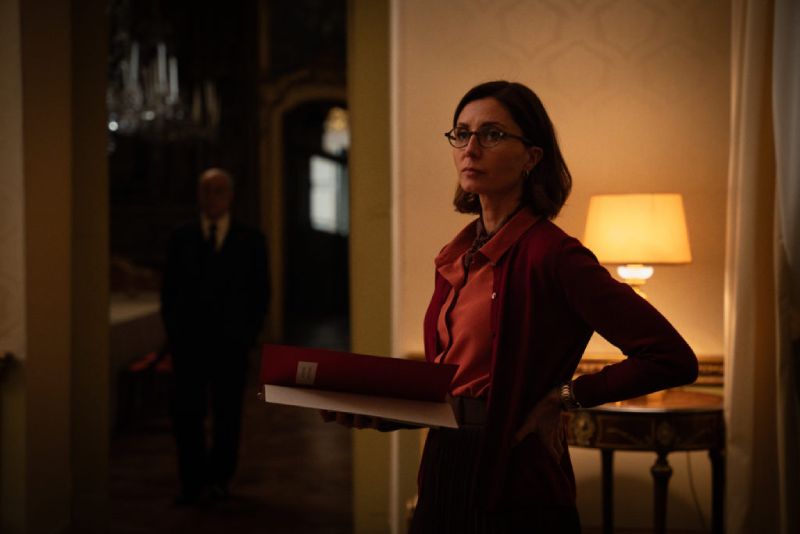
Anna Ferezzeti in La grazia, by Paolo Sorrentino © Andrea Pierillo.
The film revolves around Mariano De Santis, President of the Italian Republic —a former judge and author of essential legislative texts— in the twilight of his term. A widower and father of one daughter, he faces a moral dilemma surrounding two requests for pardons and a new law on euthanasia. Far from becoming a conventional legal or political drama, Sorrentino’s narrative delves into the intimate, exploring the cracks in a man caught between institutional duty and the fragility of his personal life.

La grazia, by Paolo Sorrentino © Andrea Pierillo.
This occurs from the very first sequences, with a mise-en-scène that introduces us to a universe dominated by the solemnity of architectural spaces: endless corridors, marble offices and deserted halls that weigh more heavily than the protagonist himself. The cold, white lights of the official settings contrast with the warm, almost domestic tones that burst in at specific moments in the film, revealing the importance of an inner world where compassion and doubt make their way in the face of the rigidity of the law. This visual dialectic between the public and the private thus becomes the essential driving force of the work.
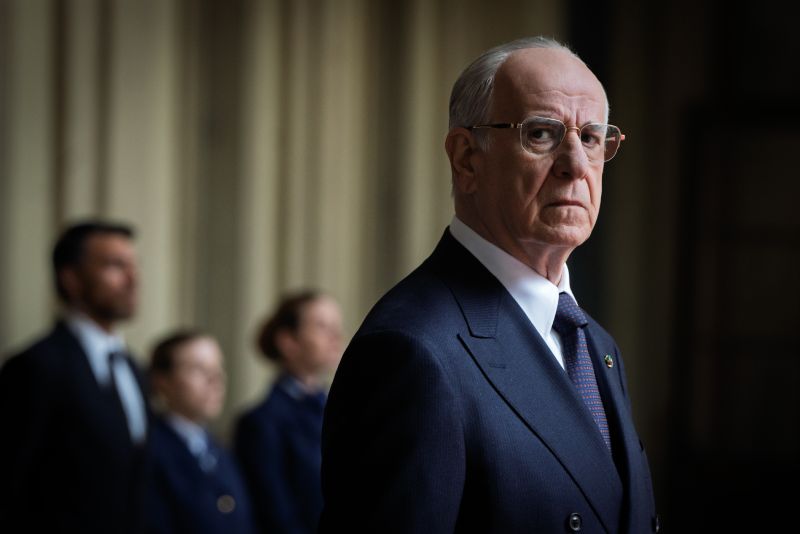
Toni Servillo in La grazia, by Paolo Sorrentino © Andrea Pierillo.
Toni Servillo embodies the president with admirable restraint. Far from histrionics and caricature, his performance relies on minimal gestures: a hand that hesitates before signing, a silence more eloquent than any words, a gaze that avoids direct contact. Sorrentino leads him towards an expressive nakedness that distances him from the exuberance of La grande bellezza and brings him closer to an acting asceticism reminiscent of his memorable work in Le conseguenze dell’amore. His performance impeccably underscores the fragility of man, especially in the scenes with his daughter, played by Anna Ferzetti, behind the mask of authority. More than a politician, here Servillo is a weary man trying to hold his own in the face of the magnitude of power and his own loneliness.
The film, however, is not without its limitations. Formal rigour, taken to the extreme, often runs the risk of imposing a coldness that keeps the viewer in aesthetic admiration, but at a certain emotional distance. The deliberately slow and reflective narrative also demands constant attention that not everyone will be willing to give, despite some light moments that mitigate the heaviness. Thus, what for some might be a work of sobriety and maturity, for others may be an excessively restrained exercise, more concerned with form than with true emotional involvement. Added to this is a script that at times becomes repetitive, almost sententious, detracting from its freshness and originality.
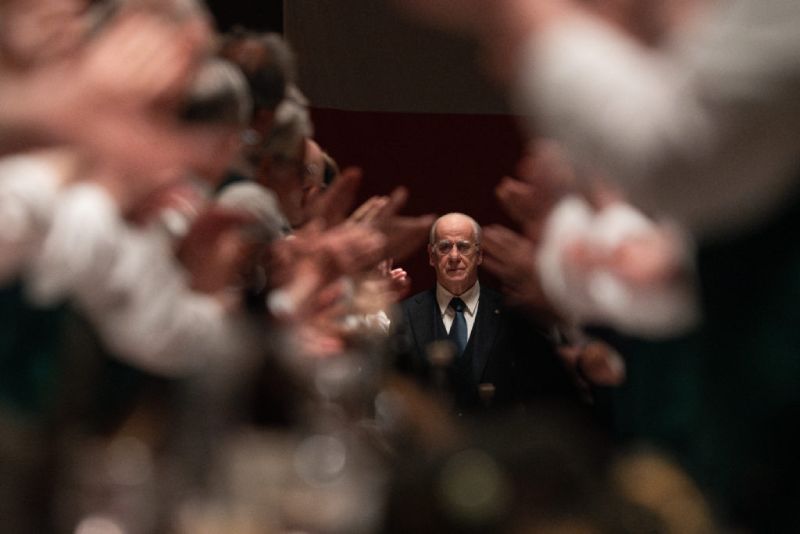
Toni Servillo in La grazia, by Paolo Sorrentino © Andrea Pierillo.
However, when visual austerity is pierced by flashes of intimacy—a warm light filtering into an interior, a face approaching delicately, a moment when the president lets his guard down—La grazia achieves moments of deep emotion. It is in these moments that the film justifies its title, offering not so much a lesson on power as a meditation on the human need to receive and grant grace despite the contradictions and fragilities of human beings. Sorrentino offers, albeit with ups and downs, a visual and moral experience that leaves no one indifferent, with a contemplative and rigorous tone, renouncing the usual sensationalism of his cinema in favour of a more sober and reflective register.



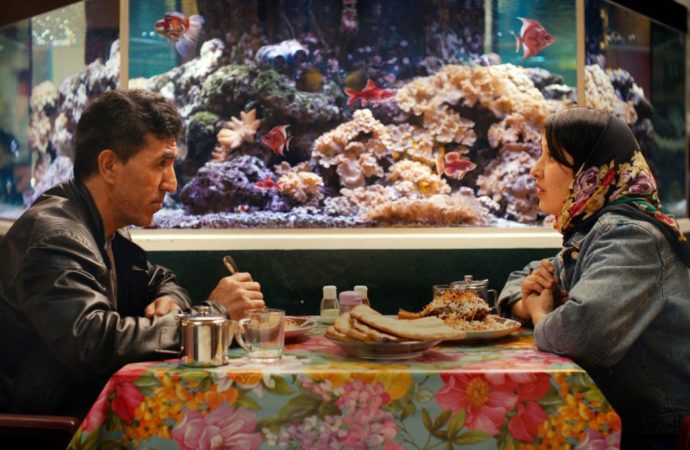


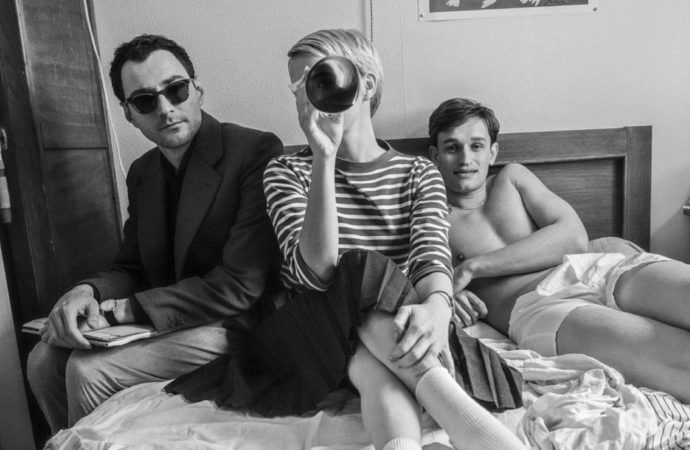
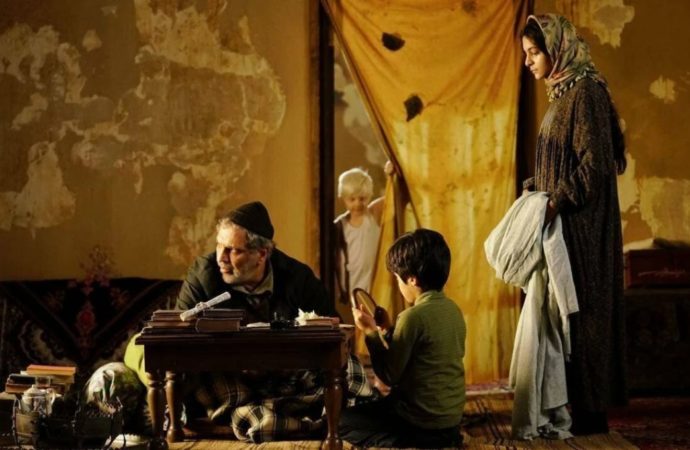
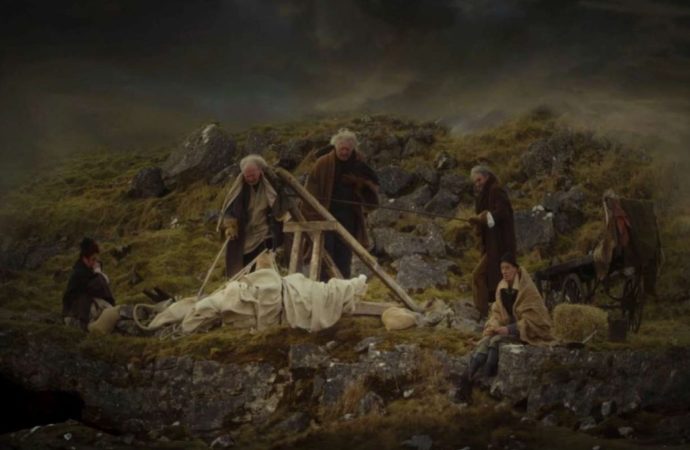
No one has posted any comments yet. Be the first person!